 Petzlover
Petzlover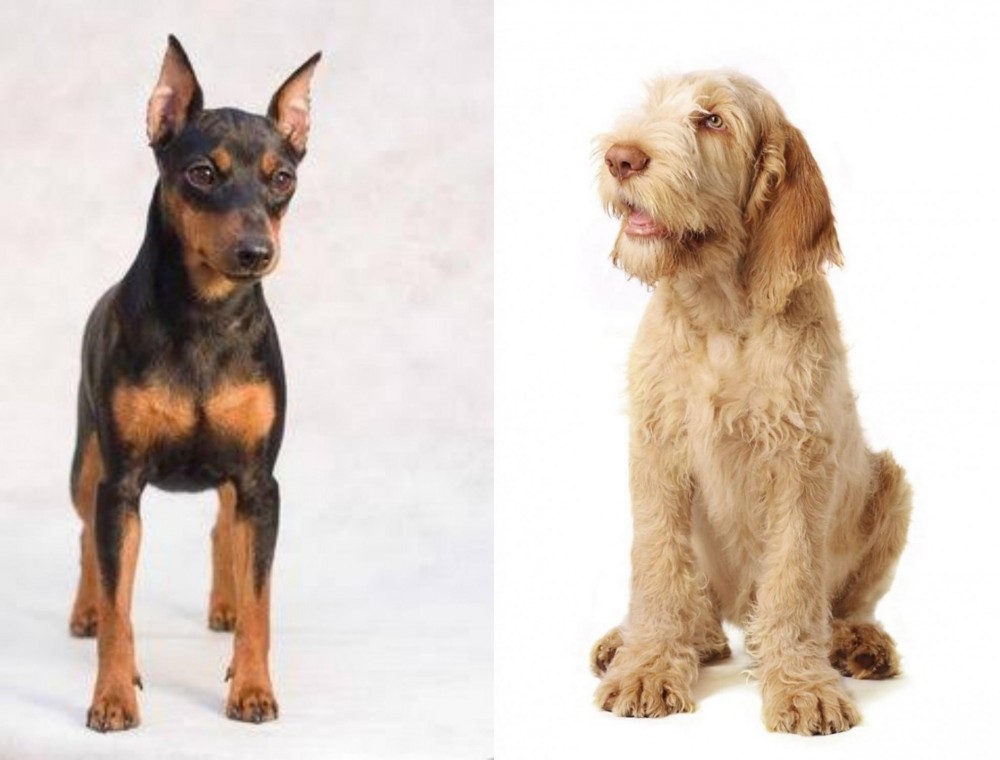 Miniature Pinscher is originated from Germany but Spinone Italiano is originated from Italy. Miniature Pinscher may grow 40 cm / 15 inches shorter than Spinone Italiano. Miniature Pinscher may weigh 34 kg / 74 pounds lesser than Spinone Italiano. Miniature Pinscher may live 6 years more than Spinone Italiano. Miniature Pinscher may have less litter size than Spinone Italiano. Miniature Pinscher requires Low Maintenance. But Spinone Italiano requires Moderate Maintenance
Miniature Pinscher is originated from Germany but Spinone Italiano is originated from Italy. Miniature Pinscher may grow 40 cm / 15 inches shorter than Spinone Italiano. Miniature Pinscher may weigh 34 kg / 74 pounds lesser than Spinone Italiano. Miniature Pinscher may live 6 years more than Spinone Italiano. Miniature Pinscher may have less litter size than Spinone Italiano. Miniature Pinscher requires Low Maintenance. But Spinone Italiano requires Moderate Maintenance
 The Miniature Pinscher hails from Germany. It appears to be an ancient dog breed, going back hundreds of years and being used to kill vermin.
The Miniature Pinscher hails from Germany. It appears to be an ancient dog breed, going back hundreds of years and being used to kill vermin.
He is a distinct breed and much older than the Dobermann Pinscher. Development of this small dog started way back in 1895 when the Pinscher Klub was formed. It was renamed the Pinscher-Schnauzer Klub and the first breed standard was also written.
By 1929, the Miniature Pinscher Club of America was formed.
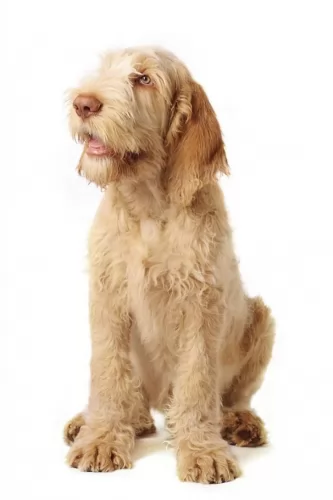 This Italian breed has an ancient blood line tracing all the back to 500 BC. Originally bred to hunt, he is today a friendly, alert and loyal companion. He is intelligent enough to do any job you give him. The Spinone is thought to be one of the oldest gun dogs ever, but it is not entirely clear that he came from Italy. There are some who think he may have come from somewhere in these European countries – Italy, Greece, France, Celtic Ireland, Spain or Russia. However, most believe the breed came from Italy in the Piedmont area.
This Italian breed has an ancient blood line tracing all the back to 500 BC. Originally bred to hunt, he is today a friendly, alert and loyal companion. He is intelligent enough to do any job you give him. The Spinone is thought to be one of the oldest gun dogs ever, but it is not entirely clear that he came from Italy. There are some who think he may have come from somewhere in these European countries – Italy, Greece, France, Celtic Ireland, Spain or Russia. However, most believe the breed came from Italy in the Piedmont area.
The most common thinking is that he is a descendent of the Spanish Pointer and/or the Russian Setter. One other theory is that setters from Greece were brought to the Roman Empire and crossed with a variety of Italian dog to make the coarse haired Spinone we see today. Then the French put in their claim that the breed is a cross of many French pointers.
The theory that counts might just belong to the Italians who believe the ancestor to the Spinone includes the German Wirehaired Pointer, the Pudelpointer and the Wirehaired Pointer. It was not until the 19th century that the name Spinone was officially given to the breed.
Before that it might have been known as a Spinoso and named after a thorn bus in Italy called the Spino. This bush was so thick and sharp that small prey animals learned to hide under it because the predators could not get through it. The Spinone however was able to fight through the briars with its thick, coarse hair and tough skin.
The breed almost became extinct during the second world war as before and after the hunters in Italy had started to use other breeds for hunting. Breeders also began to cross the Spinone with wire hairs like German Wirehaired Pointer, the Wirehaired Pointing Griffon and the Boulet.
The most popular hunting dog in Italy today is the Bracco Italiano while the Spinone is still used for hunting.
 This bright, alert little dog stands at 25 to 30cm and weighs in the region of 3 to 5 kg.
This bright, alert little dog stands at 25 to 30cm and weighs in the region of 3 to 5 kg.
The body is lean and muscular with strong, straight legs. He has a short, sleek coat with no undercoat. The coat is black and tan, chocolate or a rusty shade. The ears are erect but sometimes they are half erect and half floppy, the little nose is black and the tail is usually docked. If you allow your Min Pin to breed, you can expect 2 - 6 puppies.
The Min Pin is a bright, feisty, alert toy breed, full of personality and full of spunk, making him an excellent watchdog too.
He isn’t aggressive towards his human family but he is full of attitude and can be aggressive with other dogs. He may be small but he isn’t a lap dog, being way too active for that, loving to be involved in a game or going for a walk.
He is loving with his human family, but training and socialization can make him a better pet, obedient and amicable. He is intelligent too so he learns easily. He gets along well with children but only when those children have been taught to be kind ad gentle with all animals, but particularly with teeny weenies like himself.
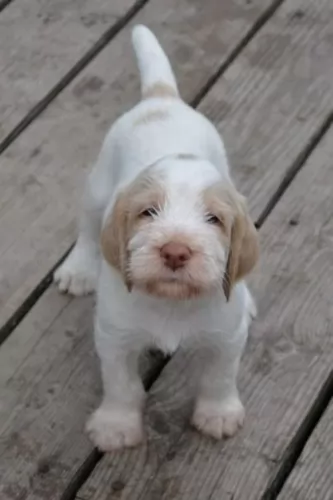 The breed is made up of strong, solid and muscled dogs that have an almost square build. His legs are made to travel any terrain and his head is long with an occipital that is pronounced and unique to the Spinone. They are said to have “human appearing eyes”, with a docked tail in countries allowing it and webbed paws.
The breed is made up of strong, solid and muscled dogs that have an almost square build. His legs are made to travel any terrain and his head is long with an occipital that is pronounced and unique to the Spinone. They are said to have “human appearing eyes”, with a docked tail in countries allowing it and webbed paws.
Shorter hair covers their feet, head, legs, muzzle and ears. They have longer hair on their eyebrows and it is stiff, with soft hair on the muzzle and cheeks with a beard and mustache. It is a single coated dog though the coat is rough. They should have skin, lips, nose, and pads in colors that coordinate with their coats. For white dog it is a red-orange color, brown in dogs that are roan colored and dark red-orange in the orange and white colored dog.
 The Miniature Pinscher is such a sporty, fun-loving, confident little dog that is also fearless for his small size.
The Miniature Pinscher is such a sporty, fun-loving, confident little dog that is also fearless for his small size.
He thinks he is a ferocious, big Dobermann Pinscher at heart and is ready to guard and protect his family with everything he’s got.
He is full of energy too and always ready for his daily walk and other forms of exercise and games.
He may be small, but he doesn’t want to be a lap dog, as he is too active for that. He can be highly entertaining and he promises to make you the most devoted and loving little family pet.
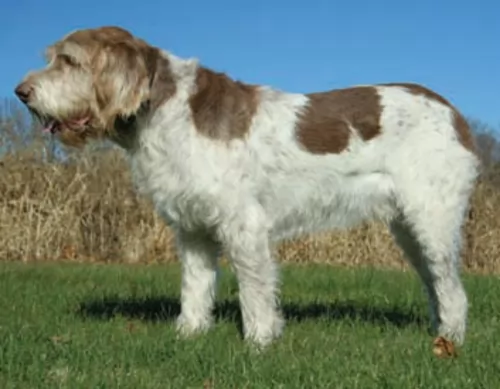 3.Adaptability – Young dogs need a lot of attention but they don’t need a lot of space. The young dogs are energetic while the adult dogs are laid-back. They need exercise every day and at least a small back yard.
3.Adaptability – Young dogs need a lot of attention but they don’t need a lot of space. The young dogs are energetic while the adult dogs are laid-back. They need exercise every day and at least a small back yard.
 Min Pins are robust little dogs and can enjoy good health when looked after properly. They can reach 15 years of age and even more.
Min Pins are robust little dogs and can enjoy good health when looked after properly. They can reach 15 years of age and even more.
Just like with any other dogs though, they’re prone to certain health conditions. Your Miniature Pinscher is highly unlikely to get any of these diseases, but it's good to be aware of some of them.
Progressive Retinal Atrophy, known as PRA for short is an eye disease where there is gradual deterioration of the retina. You will no doubt see your dog being affected with night blindness – not being able to find their way around as they usually do.
Legg-Calve-Perthes Disease is a hip joint problem that often affects toy breeds. The blood supply to the head of the femur is decreased and you’ll notice your pet limping. It’s not an ailment reserved for old dogs either but can be found in puppies that are just 4 months of age.
Hypothyroidism is a disorder of the thyroid gland and can lead to skin conditions with your dog as well as lethargy, hair loss and obesity.
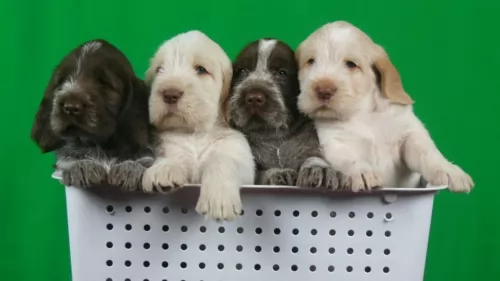 This is an ancient breed with not a lot of documented genetic issues, but it does have one deadly condition.
This is an ancient breed with not a lot of documented genetic issues, but it does have one deadly condition.
• Cerebellar ataxia (CA) is inherited and hits the puppies. Because it is a recessive gene both the mother and father must carry it for the puppy to inherit it. This makes it less likely than it would be otherwise. Puppies with the condition do not live more than a year. Since it is a genetic problem there is now a test for it that identifies carriers at a 95% accuracy rate.
• Like many other large breed dogs, they are susceptible to hip dysplasia. This can cause arthritis and/or lameness. There are now hip replacement surgeries available for this condition.
• Bloat is again common in large dogs and you need to watch for it with the Spinone. It can be deadly if not treated immediately. Let your dog rest quietly after eating. Do not let her exercise or play energetically after eating.
 Grooming is easy and you will simply need to brush him twice a week as his coat is short and smooth. There is really no need to bath the Min Pin and you could even take a damp cloth and wipe him down to avoid using a shampoo which could dry the skin.
Grooming is easy and you will simply need to brush him twice a week as his coat is short and smooth. There is really no need to bath the Min Pin and you could even take a damp cloth and wipe him down to avoid using a shampoo which could dry the skin.
Always check his eyes and ears for infection and check for fleas and ticks too. His nails will need to be trimmed, more so if he doesn’t wear them down naturally.
Check your dogs teeth. Small dogs are more prone to dental disease and you want to brush his teeth 2 or 3 times a week with special canine toothbrush and toothpaste to avoid dental problems.
The amount your Miniature Pinscher eats will be determined by his age and his activity levels.
When you buy commercially manufactured food, you will need to buy food that is recommended for small, energetic dogs. You don’t want to feed your pet dry kibble day after day, so a tasty, nutritious treat is to add finely chopped up boiled chicken, brown rice of pasta and some cooked vegetables such as potatoes, carrots and spinach into his kibble.
All dogs, but particularly little dogs, love simple food that is consistent like what has been mentioned. They don’t do well on strange, exotic kinds of foods as it upsets the stomach. Make sure he has cool, fresh water available to him at all times, night and day.
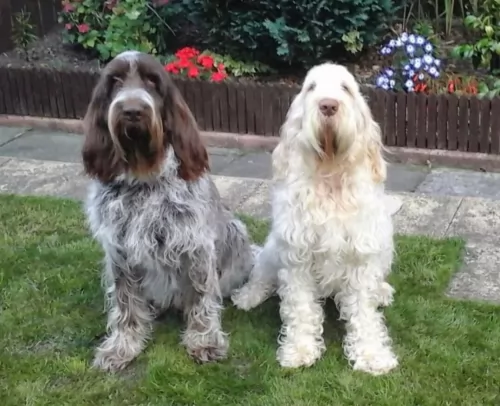 1Feeding the puppy – feed a high quality dog food for puppies of large breeds. Feed 3-4x day but don’t overfeed or let him exercise after eating even as a puppy.
1Feeding the puppy – feed a high quality dog food for puppies of large breeds. Feed 3-4x day but don’t overfeed or let him exercise after eating even as a puppy.
2.Feeding the adult - feed a high quality dog food for large breeds. Feed 1-2X day but don’t overfeed or let him exercise after eating.
4. Games and Exercises – The Spinone is an active breed, but not a fast dog. In fact, they like to travel at a trot so it becomes a great dog for jogging or running with. They love to jump, track, hunt, hike. They do well with agility, retrieving, flyball, carting, being a therapy dog, a rescue dog and a watchdog.